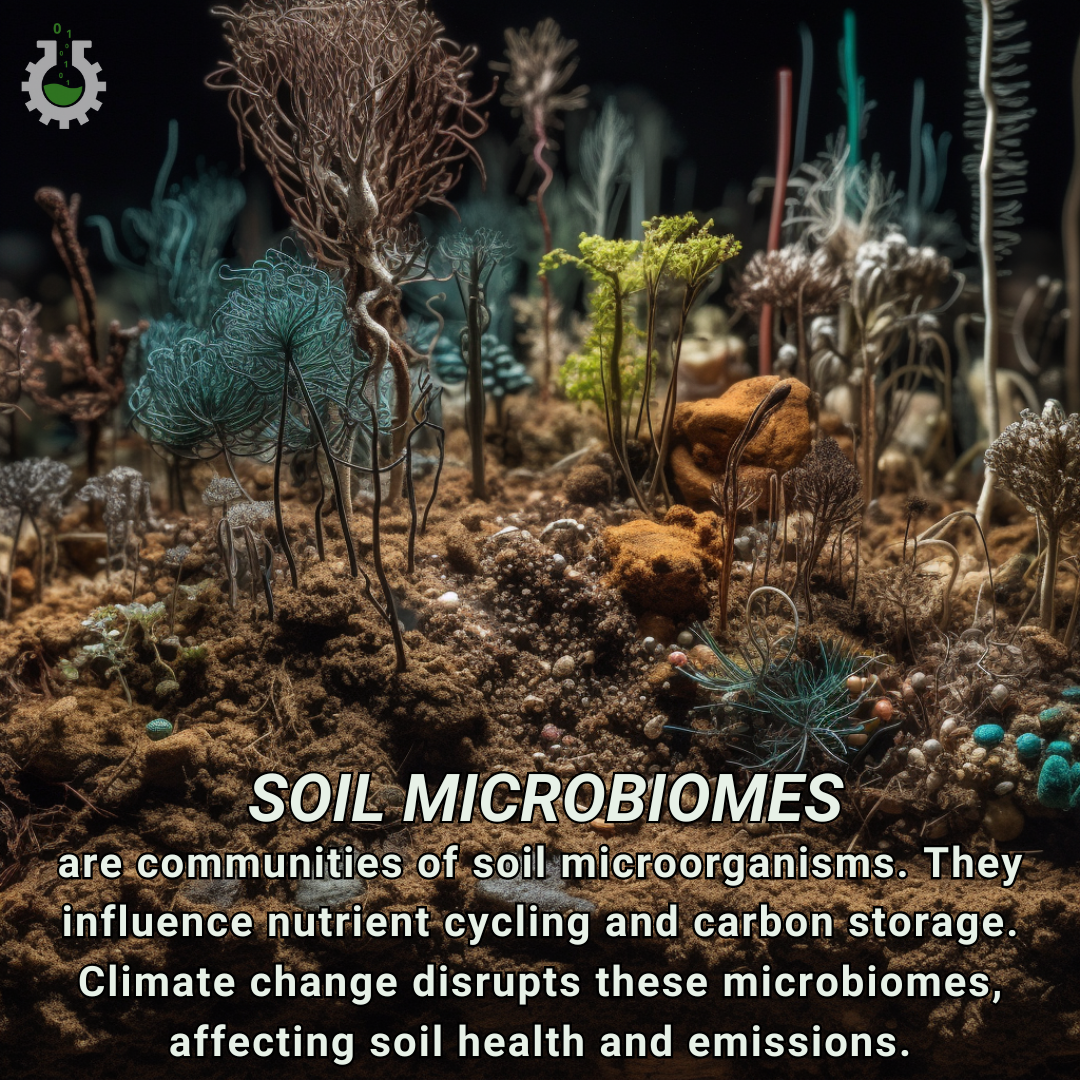June 20, 2024
Climate Change Poster Collection of the Day – Soil Microbiomes
Book a Demo
Today’s Climate Change Poster Collection highlights Soil microbiomes, refer to the diverse communities of microorganisms, including bacteria, fungi, archaea, and viruses, that inhabit the soil. These microscopic organisms are integral to the health and functionality of ecosystems, playing crucial roles in nutrient cycling, organic matter decomposition, soil structure maintenance, and plant growth support. Despite their fundamental importance, the impact of climate change on soil microbiomes is a topic that is often overlooked in broader climate discussions. Understanding this nexus is essential for developing comprehensive strategies to mitigate and adapt to climate change.
As climate change progresses, it alters temperature and precipitation patterns worldwide, which in turn significantly affects soil microbiomes. Warmer temperatures can accelerate microbial metabolism, leading to faster decomposition of organic matter. This rapid decomposition can release more carbon dioxide and methane—potent greenhouse gases—into the atmosphere, creating a feedback loop that exacerbates global warming. This phenomenon is particularly concerning in regions with large stores of organic matter, such as the Arctic tundra, where permafrost thawing releases previously trapped carbon.
Conversely, prolonged droughts and altered precipitation patterns can have equally detrimental effects on soil microbiomes. Drought conditions can reduce microbial activity and diversity, impairing nutrient cycling and soil fertility. Microorganisms require moisture to thrive, and a lack of water can lead to a decline in microbial populations, affecting the soil’s ability to support plant life. Changes in precipitation can also lead to soil erosion and the loss of microbial habitats, further destabilizing these vital ecosystems. Heavy rainfall events, which are becoming more frequent due to climate change, can wash away topsoil, taking with it the microorganisms that are essential for soil health.
The implications of these changes are profound and multifaceted. In agriculture, shifts in soil microbiomes can affect crop yields and soil health, potentially leading to food security issues. Healthy soil microbiomes are crucial for decomposing organic matter and releasing nutrients that plants need to grow. Disruptions in these processes can lead to poorer soil quality and reduced agricultural productivity. Forest ecosystems are also at risk, as changes in soil microbiomes can affect tree health and forest regeneration. Forests play a critical role in sequestering carbon, and any impact on their health can have significant consequences for the global carbon cycle.
Moreover, soil microbiomes are involved in the global carbon and nitrogen cycles, influencing the storage and release of greenhouse gases. Disruptions in these cycles due to climate change can have cascading effects on global climate systems. For example, increased carbon dioxide release from accelerated microbial decomposition can enhance the greenhouse effect, leading to further warming. Similarly, changes in nitrogen cycling can affect the availability of this essential nutrient for plants, impacting ecosystem productivity and biodiversity.
Despite their importance, soil microbiomes remain under-researched in the context of climate change. This gap in knowledge highlights the need for more focused studies to understand and mitigate the impacts of climate change on these critical components of the ecosystem. Research in this area can provide valuable insights into developing sustainable land management practices that support soil health and resilience. It can also inform climate change mitigation strategies by identifying ways to enhance the soil’s capacity to sequester carbon and support robust ecosystems.
The relationship between climate change and soil microbiomes is a complex and critical area of study that warrants greater attention. By exploring this overlooked nexus, we can gain a deeper understanding of the broader impacts of climate change and develop more effective strategies to protect and sustain our planet’s health. Soil microbiomes are not just a hidden world beneath our feet; they are a cornerstone of life on Earth, and their health is intrinsically linked to the health of our global environment.
Discover an inspiring collection of climate change poster.



